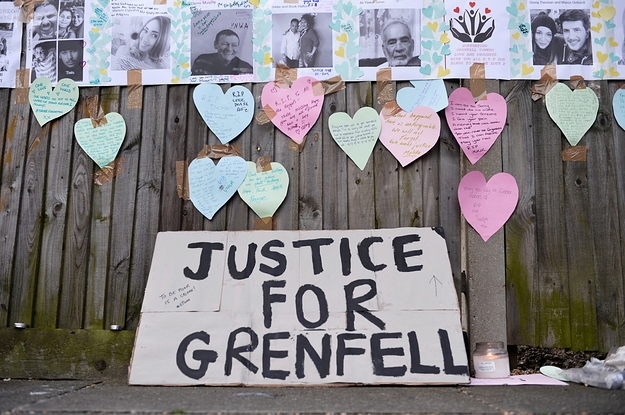Bishop calls for new law to empower victims of tragedies such as Grenfell
The former Bishop of Liverpool, James Jones, today condemned a wall of silence created by people in authority in a Government-backed review of the Hillsborough tragedy.
The bishop, who chaired the panel that eventually led to prosecutions over the 1989 events at Sheffield Wednesday’s stadium, told how, over the last two decades, he had listened to what the families had endured following the disaster which left 96 fans dead and many more injured and deeply traumatised.
“The phrase has formed in my mind to describe what they have come up against whenever they have sought to challenge those in authority – ‘the patronising disposition of unaccountable power’. Those authorities have been in both the public and private sectors,” said Bishop Jones.
“The Hillsborough families know that there are others who have found that when, in all innocence and with a good conscience, they have asked questions of those in authority on behalf of those they love, the institution has closed ranks, refused to disclose information, used public money to defend its interests and acted in a way that was both intimidating and oppressive.”
He concluded: “And so the Hillsborough families’ struggle to gain justice for the 96 has a vicarious quality to it so that whatever they can achieve in calling to account those in authority is of value to the whole nation.”

The review, The Patronising Disposition of Unaccountable Power, is aimed at ensuring the families’ pain and suffering is never repeated with calls for a “Hillsborough law”, a list of reforms proposed by them, Labour MPs and the mayor of Greater Manchester, Andy Burnham.
It was commissioned by Theresa May when she was Home Secretary, following the conclusions of the fresh Hillsborough inquests in April 2016, in order that the families’ perspective was not lost.
Bishop James, who is the Home Secretary’s advisor on Hillsborough, met the families in both group sessions and one to one as he compiled his report.
In the review, he urges the current Home Secretary, Amber Rudd, to help ensure that those responsible for national institutions listen to what the experiences of the Hillsborough families say about how they should conduct themselves when faced by people bereaved by public tragedy.

Bishop James’ review – which includes numerous first-hand accounts of the Hillsborough families’ encounters with private and public authorities – has 25 points of learning. They include:
- “Proper participation" of bereaved families at inquests, including publicly funded legal representation for them when public bodies are legally represented; an end to public bodies spending limitless sums and a change in the way in which public bodies approach inquests so they treat them not as a reputational threat but as an opportunity to learn
- The establishment of a “duty of candour” for police officers which addresses the “unacceptable behaviour” of serving or retired police officers who fail to cooperate fully with investigations into alleged criminal offences or misconduct.
- The creation of a “Charter for Families Bereaved through Public Tragedy”, made up a series of commitments by public bodies, each related to transparency and acting in the public interest.
Home Secretary Amber Rudd said: “The government will now carefully study the 25 points of learning and we will provide a full response in due course.”
Barrister Jared Ficklin, from the University of Liverpool, said: “The bishop's report highlights the costs of inaction. The Grenfell Tower disaster is another tragedy that will require support for the victims and candour from public bodies.
“Grenfell shocked us with the immediacy of the apparent failings; we saw the fire spread with terrifying speed on television. We learned of the tenancy association's warnings to the intractable management committee, and saw the anger in the streets at the council's relief and rehousing effort. Initial demands were made for a report by the end of summer, but the survivors and families were forced to settle for a longer public inquiry, chaired by Sir Martin Moore-Bick.”

Ficklin said a “Hillsborough Law” would empower the Grenfell victims and their families to demand that public bodies involved cooperate fully and openly with the inquiry, supplying any relevant information, telling the truth and being clear about any failures.
“If Hillsborough Law is passed, the legacy of Hillsborough will not only be the disgraceful treatment of the families through the years, detailed in the Bishop's report, but a new era of transparency and justice for victims and their families.”
There have been calls and a campaign, including a plea to Theresa May, to resurrect the bill in this Parliament, after it fell due to the calling of the June snap general election.











